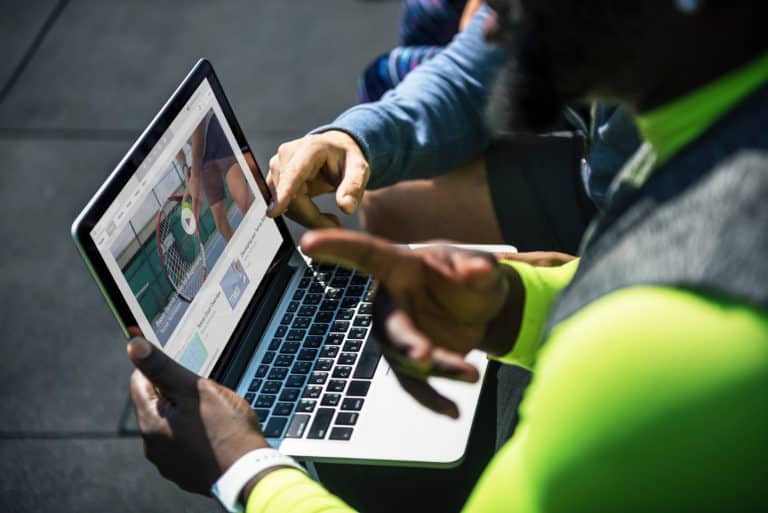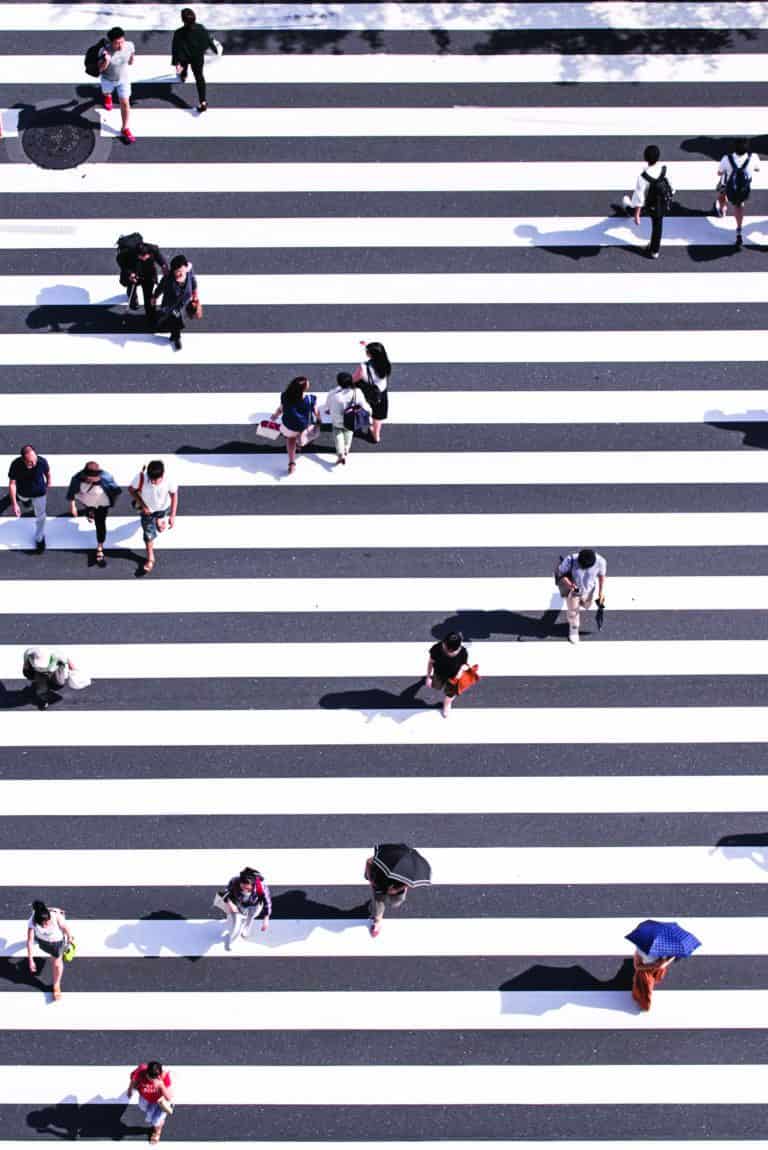Seven Global Challenges for 21st Century Education

The world population has quadrupled since World War II (from two to nearly eight billion). Artificial intelligence now effectively has the computing power of a human brain. We are exhausting over 150% of the planet’s biocapacity. Globalisation and social media have made the world far more accessible than ever before. At the same time growth in income disparity have further created separate enclaves in the planet’s population.
The world of today is one of “VUCA” (volatility, uncertainty, complexity and ambiguity). Society would appear unrecognisable (at least technically) to our great-grandparents. And the intuitive response is that the education we are providing for young people should, therefore, change radically.
As we approach the first quarter of the 21st Century, schools, universities, industries and society at large are asking fundamental questions about education. Whether you like it or not, we are in a paradigm-shifting age. Technological, demographic, social, environmental, economic and political shifts are forcing us to redefine what our educational structure should be.
The discussion has also widened from the inner circles of curriculum experts and researchers to the broader public. Discourses run amok from academics, neuroscientists to sound bites from politicians, celebrities and CEOs.
WHAT IT MEANS TO BE AN EDUCATOR
At the centre of this whirlwind is the young person looking into the midst of the future. In each child, there is the promise of the powerful, ethical, creative, critical and engaged adult they will become.
What a privilege to educate but what a responsibility too. The decisions we take as instructors can help shape the way they act for the future of humanity. Just as the educator nurtures knowledge, skills and dispositions in the learner and helps her along the path to maturity, so should the educator open her mind to the world with the fresh perspectives of youth. We could dynamically conceptualize so much of the world’s present and future in game-changing ways if adults could embrace the vibrancy, curiosity, hope and thirst for opportunity that characterises growth mindsets as opposed to the fixed mindset of closure and judgement that, unfortunately, distinguish so much of the adult world.
A thread that runs through this book is a series of snapshots and stories of young people that I’ve worked with in my career as a teacher and a head of school. These voices, anonymised, remind us that discussions about the future of education must involve those it implies. Those who will carry the present into the future, those with dreams for the future. I say this because many forecast studies are all doom and gloom. They come from generations that will not be on the planet to live through the countless catastrophes that loom ahead. We need to think about the future with wonder and appetite, not fear and regret.

Seven Challenges
EDUCATION CHALLENGE ONE: MINDFULNESS
In many so-called developed countries and most schools, human beings are complaining about high levels of stress as they carry out hyperactive lifestyles that can become unhealthy and compulsive. This has led to some responses, especially in schools, in the area of Mindfulness. What are schools doing and should they be doing to promote happy, focussed calm and appreciative people and how well does the Mindfulness movement stand up to this challenge?
Part of this chapter looks, critically, at new-age attempts to spiritualise life through meditative practice while avenues that can lead to an equally and possibly far more mindful lifestyle are relatively simple and have been embedded in school programmes for years.
The areas of sports and arts can have the effect of allowing the mind to gain focus. We must sensibly mediate the interference of new technologies in the average person’s life.
EDUCATION CHALLENGE TWO: SINGULARITY
The machines that humans have built and the algorithms that drive them are challenging the uniqueness of some of the essential constituents of human intelligence. Human beings, including young people, appear increasingly attached to devices and dependent on them. What are the implications for education?
The chapter grapples with definitions of intelligence, both human and artificial, and explores how human beings are operating socially and cognitively alongside algorithms and how this might happen in the future. Artificial intelligence implies that some areas of human activity can be outsourced by machines whereas others cannot. This leaves a space for schooling to develop those facets of humanity that are uniquely human and cannot be taken over by artificial intelligence.
EDUCATION CHALLENGE THREE: TERRORISM
International terrorism has become a global problem. Few societies feel entirely sheltered from the risk of an attack. A climate of fear, mistrust and xenophobia grows in response to these attacks. How can schools work with young people to face the problem of terrorism and, hopefully, reduce it?
An educational approach to terrorism must incorporate not only awareness of what terrorism is and why it exists, but the more subtle underpinning areas of identity and faith that are ultimately determining factors in the conversion of moderate people into terrorists. I argue that the spiritual vacuum created by a secular Western approach to life if left unattended can be colonised quite easily by fundamentalists.
On the side of victims or potential victims of terrorism, the chapter discusses steps that institutions can take to enhance security and support the community with coping mechanisms in the aftermath of an attack.
EDUCATION CHALLENGE FOUR: SUSTAINABILITY
We are depleting the planet’s biocapacity at an exponential rate. If current behaviours do not stop soon, we will quickly exhaust our planet’s resources. Human beings will then face a level of resource scarcity that will make life intolerable if not impossible. What can schools do to slow down this time bomb?
Such a situation, probably the most urgent for our planet, even if the behaviour continues to suggest that biological extinction. It is a distant and abstract possibility, requires a deep-seated emotional and intellectual approach to ensure that sustainable action is rooted in a long-term, lifelong attitude to profound change.
I argue that we have to design learning experiences that ensure that young people love and respect nature while further understanding the valuable, erstwhile neglected knowledge and appreciation of life that we can learn from indigenous cultures. An additional facet of a sustainable education is making students aware of the local parameters of environmentalism so that they do not fall into the trap of seeing planetary causes as generalised, distant needs while disregarding their immediate surroundings.
EDUCATION CHALLENGE FIVE: POST-TRUTH POLITICS
Political developments in the middle of the first quarter of the 21st Century have led some to argue that truth does not mean what it used to, that we are entering a type of post-truth era where communications strategies supersede the verity of what is being discussed. I argue that while it is true that 21st Century democratic politics seems to be saturated in some areas, at the core of it, things have not changed that much since rhetoric, oversimplification and deception have been standard tools for political gain as far back as we can think.
We should, nonetheless, be careful about how we grapple with information in the 21st Century. There are approaches to knowledge construction that are essential in an age of sound bites broadcast on social media.
EDUCATION CHALLENGE SIX: KNOWLEDGE IN THE 21ST CENTURY
Because of new technologies and the way that knowledge is made available and distributed in the 21st Century, some believe that we need to rethink what is taught in school entirely and perhaps teach less content, opening more time and opportunities for skills development. This debate is more and more acute. I grapple with it by pointing out some essential features of knowledge that cannot be glossed over. I argue that knowledge in the 21st Century is more necessary than ever and that, on the contrary, skills over knowledge discourses, depending of course on how they are construed, tend to be misguided.
The chapter goes further than this by pointing out where knowledge could be salient for the needs of our times in the humanities and literature. I grapple with the ideologically sensitive issue of a canon and how to situate non-Western experiences and cultural representations in a world canon that transcends WASP, DWEM and Western archetypes without discarding them or attempting to belittle their centrality, for central they are.
EDUCATION CHALLENGE SEVEN: CHARACTER
At the core of any response to the global challenges that face us is the question of a person’s character. The moral fibre that will determine the scope and style of their response to any given situation. Today’s world is fast changing and uncertain and therefore requires a particularly developed level of resolve and sturdiness.
You can determine character through three core concepts: discipline, ethics and emotional intelligence.
I flesh these out in this chapter as I address questions related to mastery and determination.

WHO IS THIS BOOK FOR?
In this book, I look beyond the classroom to everything that forms a person’s character. It is not only about what schools can do but peers, mentors and social structures too. Therefore, this book is not just for instructors and administrators. It is also about anyone who is responsible for young people.
This book is for parents too. So much of what happens at home has a more significant effect on learning outcomes that what happens at school. The kind of dinner conversation you have with your child; the culture of reading, art, discussion and debate you have at home; the values you transmit to your child; the relationship you model towards technology, spirituality and the environment: these are the real backbone of a child’s education. This book gives parents ideas, contexts, syntheses of educational research and insights from the formal education sector. Educating for the Twenty-First Century: Seven Global Challenges is published by Brill and can be ordered online at www.brill.com
About the Author: Dr Conrad Hughes Campus and Secondary Principal at the International School of Geneva, La Grande Boissiere.
Conrad teaches philosophy and holds a PhD in English literature. He is currently completing a second doctorate at Durham University’s School of Education on how education can reduce prejudice. His research interests also include 21st Century Education, Critical Thinking, International Education and Assessment. He is the author of numerous articles in peer-reviewed journals. As Director of Education at the International School of Geneva, he led the publication of Guiding Principles for Learning in the 21st Century with UNESCO.
Read more articles here.
